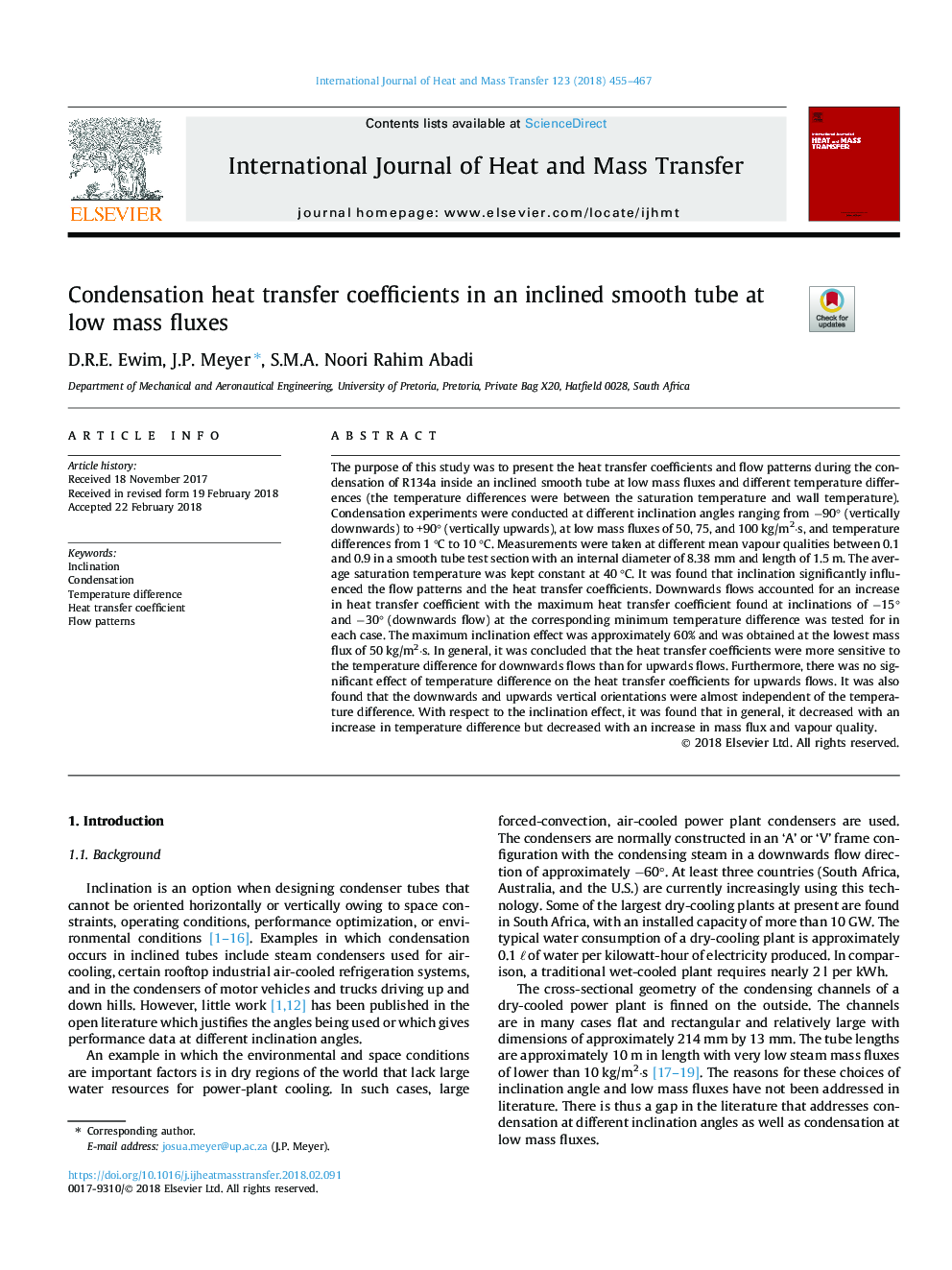| Article ID | Journal | Published Year | Pages | File Type |
|---|---|---|---|---|
| 7054262 | International Journal of Heat and Mass Transfer | 2018 | 13 Pages |
Abstract
The purpose of this study was to present the heat transfer coefficients and flow patterns during the condensation of R134a inside an inclined smooth tube at low mass fluxes and different temperature differences (the temperature differences were between the saturation temperature and wall temperature). Condensation experiments were conducted at different inclination angles ranging from â90° (vertically downwards) to +90° (vertically upwards), at low mass fluxes of 50, 75, and 100â¯kg/m2·s, and temperature differences from 1â¯Â°C to 10â¯Â°C. Measurements were taken at different mean vapour qualities between 0.1 and 0.9 in a smooth tube test section with an internal diameter of 8.38â¯mm and length of 1.5â¯m. The average saturation temperature was kept constant at 40â¯Â°C. It was found that inclination significantly influenced the flow patterns and the heat transfer coefficients. Downwards flows accounted for an increase in heat transfer coefficient with the maximum heat transfer coefficient found at inclinations of â15° and â30° (downwards flow) at the corresponding minimum temperature difference was tested for in each case. The maximum inclination effect was approximately 60% and was obtained at the lowest mass flux of 50â¯kg/m2·s. In general, it was concluded that the heat transfer coefficients were more sensitive to the temperature difference for downwards flows than for upwards flows. Furthermore, there was no significant effect of temperature difference on the heat transfer coefficients for upwards flows. It was also found that the downwards and upwards vertical orientations were almost independent of the temperature difference. With respect to the inclination effect, it was found that in general, it decreased with an increase in temperature difference but decreased with an increase in mass flux and vapour quality.
Related Topics
Physical Sciences and Engineering
Chemical Engineering
Fluid Flow and Transfer Processes
Authors
D.R.E. Ewim, J.P. Meyer, S.M.A. Noori Rahim Abadi,
